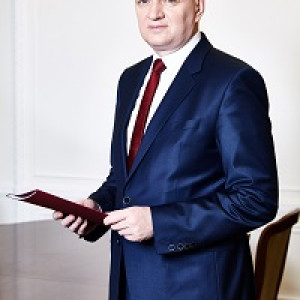Humans in the centre - the economy, the market, and labour
MOREJarosław Gowin
Position: Deputy Prime Minister, Minister of Science and Higher Education

Position: Deputy Prime Minister, Minister of Science and Higher Education
Jaroslaw Gowin was born on 4 December 1961 in Krakow. In the 1980s, he was a member of the Independent Students' Association and the ‘Solidarity’ trade union. He was a holder of the University of Cambridge scholarship. From 1989 to 1994, he worked as an assistant editor for the monthly magazine Znak and from 1995 to 2005, he was its editor-in-chief. Jarosław Gowin was the mind behind the Tischner Days and the ZNAK Flying University. He is an author of many books, articles, reviews and memories. He was a founder and former rector of the Tischner European University in Krakow, established in 2003. In 2005, Jarosław Gowin was elected to the fourth term Senate. He was a member of the Science and Education Committee and the Local Government and Public Administration Committee. In 2007, he was elected to the sixth and seventh term Sejm. He was a Chairman of the Zjednoczona Prawica Parliamentary Club in the seventh term Sejm. In his parliamentary work, Jarosław Gowin led the Team for Bioethics Convention and chaired an extraordinary committee considering parliamentary draft bills to amend the Constitution. He is also a member of the National Security Council. Jarosław Gowin cooperates with the Santa Claus Foundation, which supports the establishment of homes for single mothers and hospices, and the Siemacha association. He is also a member of the Board of Patrons of the Józef Tischner Krakow Children's Hospice. He lives in Krakow with his wife, three children and a grandson. He spends his free time hiking in the mountains with his family or reading books. Jarosław Gowin is baroque music lover.
Humans in the centre - the economy, the market, and labour
MOREYou watching archival version of European Economic Congress
What you can do:
Go to the current edition page or Continue browsing